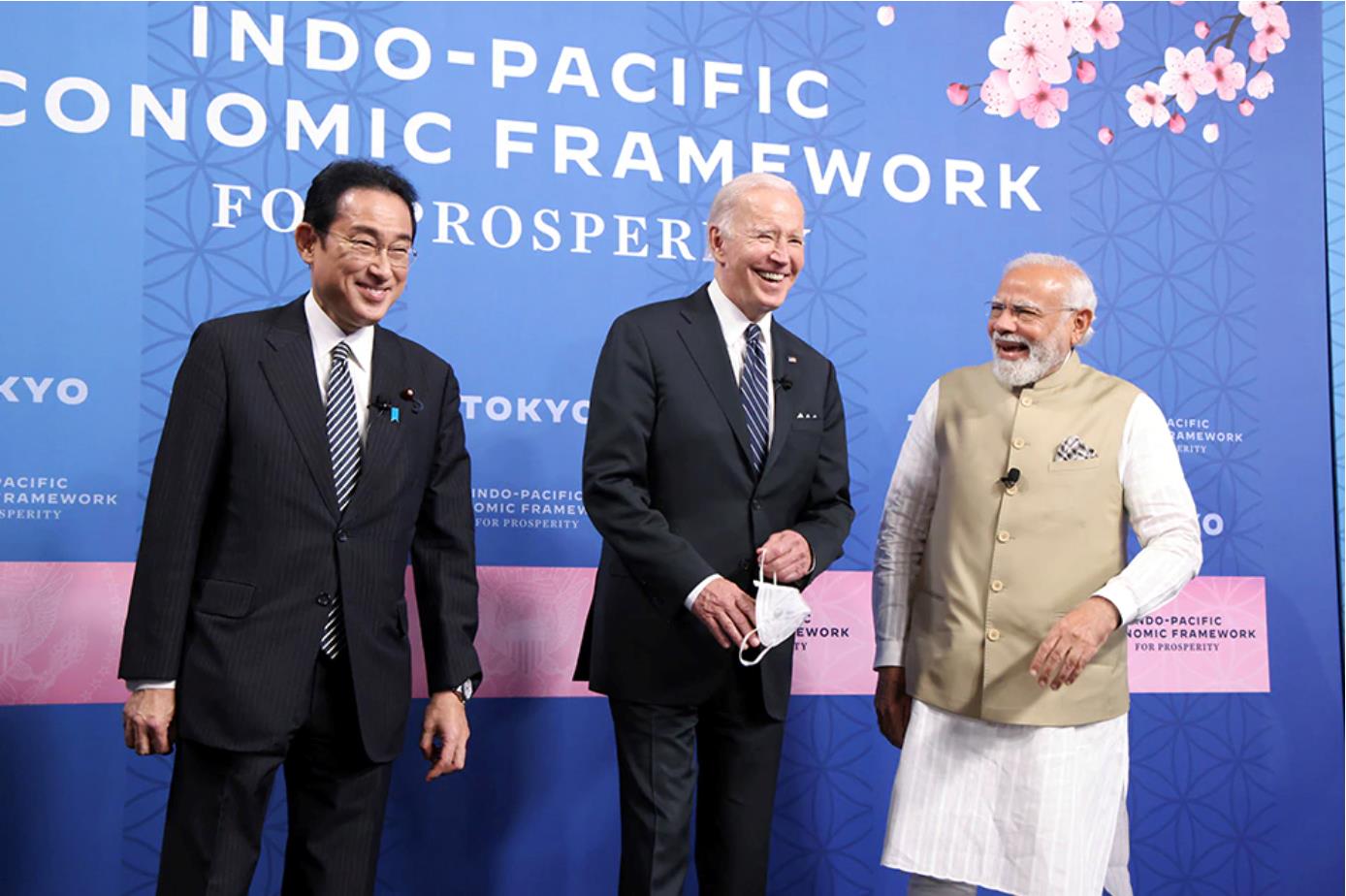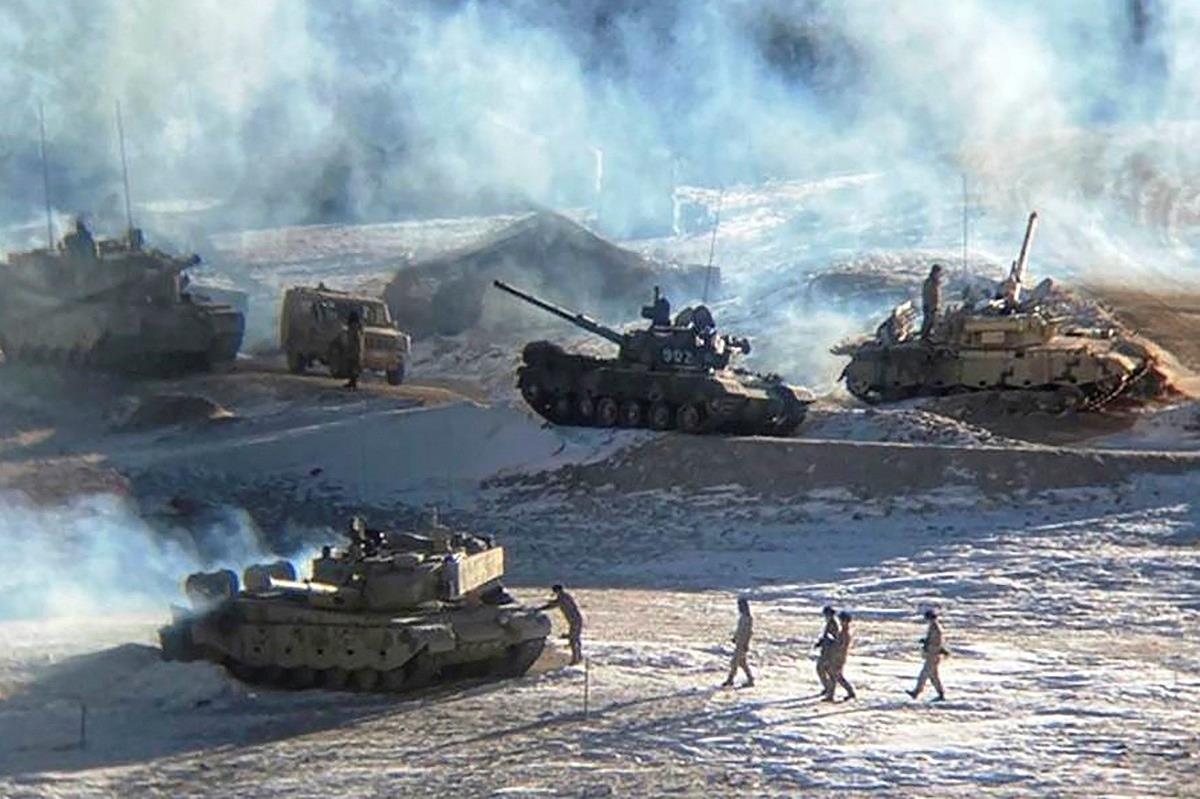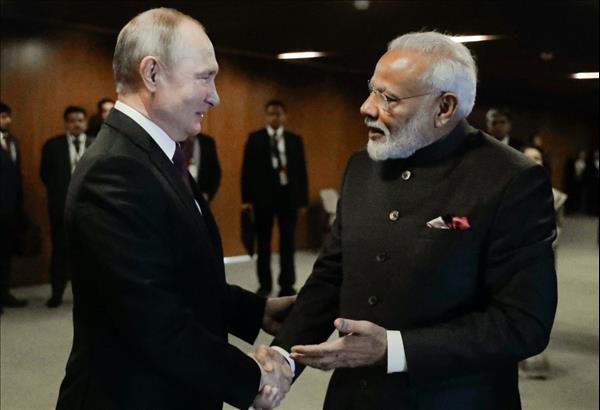
Pivotal Moment For India-Russia Relations
Indian External Affairs Minister Subrahmanyam Jaishankar drew attention to this salience while addressing a russian-indian business forum last week in Delhi, when he called the relationship among the“steadiest” in global relations, and pointed out that the partnership is drawing so much attention not because it has changed but because it has not.
The“liberal internationalist” camp in the Indian media and think tank circuit and ill-informed sections of opinion who launched an assault on the Indian stance on the Ukraine crisis are lately grasping the raison d'être of the government's handling of the fraught situation that carried risks of a potential confrontation between the West and Russia.
All signs are that Washington, from where Indian lobbyists usually draw encouragement, too has decided to reconcile itself to the Modi government's unambiguous message to the West that India will pursue a relationship with Russia in its self-interest and will go in whichever directions its interests lie.
Thus a commentary by the Voice of America took note on Sunday against the backdrop of a 50-member Indian business delegation setting out for Russia in an initiative to deepen economic ties:
The above excerpts acknowledge that on its part, India is also signaling that this paradigm need not necessarily be construed as a zero-sum game and Washington is accepting, even if grudgingly, that it cannot bully India into submission.
Arguably, President Joe Biden's invitation to Prime Minister Narendra Modi for a state visit to the White House in June and his subsequent decision to take part in the Group of Twenty Summit in New Delhi in September testify to the United States' creative response to the robustness of Indian diplomacy to sequester ties with Russia from predators.

Japanese Prime Minister Fumio Kishida, US President Joe Biden and Indian Prime Minister Narendra Modi attend a photo session at the launch of the Indo-Pacific Economic Framework (IPEF) in Tokyo, Japan, on May 23, 2022. Photo: Pool
The real challenge facing the Biden administration, though, is to take the US-Indian relationship out of the rut of a quintessentially transactional relationship and create a genuine partnership of mutual benefit, which, from the Indian perspective, fits into Modi's roadmap to“transform India into a developed country” through the coming quarter-century, as he put it in a public speech in Kochi, Kerala, on Monday (May 1).
To be sure, Indian expectations are riding high on development and Delhi will not be content with a mere subaltern role in the United States' global strategy. The US and its allies see India as a“balancer” in the Indo-Pacific region, but quite obviously, New Delhi has bigger plans.
The Russian proposal to make use of its vast export earnings out of oil sales to India by investing the funds in the manufacturing industry in India for export to Russia; the deal on adopting the Russian financial messaging system for cross-border payments; the acceptance of Indian Ru-Pay cards and Unified Payments Interface (UPI) in Russia and Russia's Mir cards and Fast Payments System in India; the operationalization of the Maritime Corridor connecting Vladivostok and Chennai – these testify to the keenness of both countries to put in place the necessary underpinnings for a massive expansion of Russian-Indian trade and economic ties in the very near future.
Jaishankar's speech at the business forum last week stressed the imperative to boost India's exports to Russia, while his Russian counterpart in the inter-governmental joint economic commission, Deputy Prime Minister Denis Manturev, called for intensifying negotiations on a free-trade agreement with India and working on an investment protection pact .
Bilateral trade has crossed US$45 billion, something unthinkable until Russia turned its back on the West and began pressing the pedal on alternative partnerships in Asia to replace the European partners. On its part, the Modi government has been quick to seize the new opportunity, especially at a time of post-pandemic recovery and the inflation-ridden European and US economies sliding into recession.
This is a golden opportunity for India to gain special privileged access to the vast mineral resources of Siberia and the Russian Far East and the contemporary El Dorado of the Russian Arctic. There is great complementarity here insofar as India with its growth trajectory presents itself as a long-term market for Russia's resource-based industry across the board.
There are no contradictions really in the Russian-Indian relationship. Some Indian analysts keep parroting the US propaganda that Russia is becoming China's“junior partner” and that is eroding the Russian-Indian mutual trust.
This calumny stems out of either a flawed understanding or, more likely, a deliberate, contrived distortion that does not take into account the reality that Russia and China are“civilization states,” each in its own right – and they are neighbors with a troubled history – which simply does not allow them to opt for a relationship in a hierarchical order that a formal alliance entails.
The heart of the matter is that Indian ingenuity lies in creating synergy out of the dynamic Russian-Indian-Chinese (RIC) triangle that could create an optimal external environment for its foreign policies to operate regionally and globally. The entrenched narrative on the Sino-Indian relationship that successive Indian governments have fostered poses an impediment. That said, it is not a legacy of the Modi government.

This undated handout photograph released by the Indian Army on February 16, 2021, shows PLA soldiers and tanks during military disengagement along the Line of Actual Control at the India-China border in Ladakh. Photo: AFP / Indian Ministry of Defense
Russia is well placed to create verve in the RIC triangle as its bilateral ties expand and deepen with both China and India. The Modi government pursues a“de-ideologized” foreign policy riveted on national interests.
This is only to be expected as the world order changes since India is looking to maximize its interests and embrace a larger strategic and security role for itself. However, fundamentally, India remains a stakeholder in a democratized multipolar international order.
Russia appreciates this nuance and has never been prescriptive.
This article was produced in partnership by indian punchline and globetrotter , which provided it to Asia Times.
M K Bhadrakumar is a former Indian diplomat. Follow him on on Twitter @BhadraPunchline.
Like this:Like Loading...
Legal Disclaimer:
MENAFN provides the information “as is” without warranty of any kind. We do not accept any responsibility or liability for the accuracy, content, images, videos, licenses, completeness, legality, or reliability of the information contained in this article. If you have any complaints or copyright issues related to this article, kindly contact the provider above.






















Comments
No comment